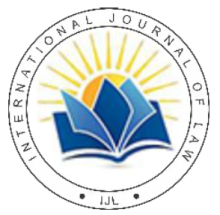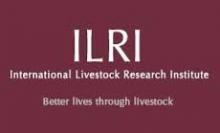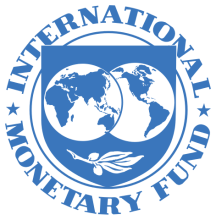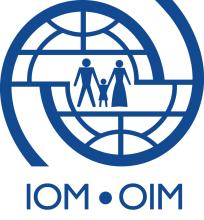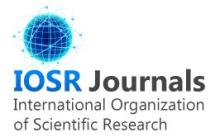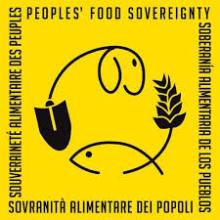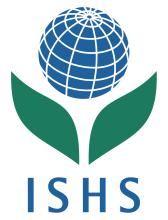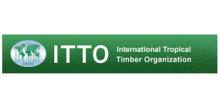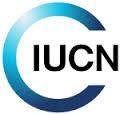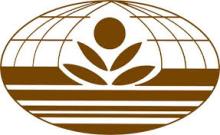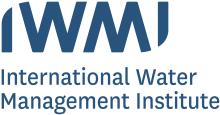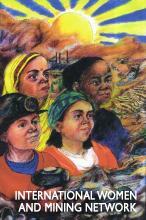The Land Library includes resources from more than 1,900 national and international information providers. Learn more about the organizations and institutions using the Land Portal to share their open-access research, data and stories.
International Journal of Humanities and Social Science
"International Journal of Humanities and Social Science (IJHSS) is an open access, peer-reviewed and refereed journal published by Center for Promoting Ideas (CPI), USA. The main objective of IJHSS is to provide an intellectual platform for the international scholars. IJHSS aims to promote interdisciplinary studies in humanities and social science and become the leading journal in humanities and social science in the world." - IJHSS
International Journal of Innovative Research
International Journal of Innovative Research (IJIR) is an open-access triannual (three times in a year), peer-reviewed and multidisciplinary journal devoted to publication of original research articles, short communication and reviews on all aspects of innovative research. It is published by the Innovative Research Syndicate (IRS).
International Journal of Law
International Journal of Law is an open access, peer-reviewed and refereed journal provide dedicated to express views on topical legal issues, thereby generating a cross current of ideas on emerging matters. This platform shall also ignite the initiative and desire of young law students to contribute in the field of law. The erudite response of legal luminaries shall be solicited to enable readers to explore challenges that lie before law makers, lawyers and the society at large, in the event of the ever changing social, economic and technological scenario.
IJL unique coverage provides practical advice on key business-law issues such as regulatory compliance, IP protection, taxation, dispute resolution, competition law and much more. It assesses the implications of legal developments, ensuring that our readers are kept fully informed of the threats and opportunities that arise from every significant change in the law. It also provides vital intelligence on the country’s law firms, legal process outsources and judiciary.
IJL started with an aim to provide an avenue for the expression of views of people belonging to the field of law. It is open for all to submit and subscribe the journal. In the present globalized scenario, it is necessary for people belonging to other fields to understand the importance, impact, and the image of law as it can affect the public at large when taken as a whole and group of individuals when viewed in parts. Further, knowledge of law (at least to an extent) has elevated form being a matter of passing interest to a level of general aptitude. The uniqueness ofIJL is that, it operates without any theme, so as to provide a reasonable opportunity to those who interested in the field to express their views accordingly.
IJL aims to facilitate the students, teachers and scholars to write papers on various contemporary issues and current trends in law. IJL invites Articles, Short Notes, Book Reviews and Case Commentaries from the legal fraternity of the country for the forthcoming issue.
IJL provides a forum for the exchange of ideas and constructive debate on legal and policy issues surrounding world trade, cross-border investment, environment, and development, broadly defined.
International Journal of Peace Studies
The International Journal of Peace Studies is the journal of the International Peace Research Association. Spanning both qualitative and quantitative approaches, to issues of conflict and prospects for peace on multiple levels, it represents the leading edge of value-explicit, multi-disciplinary scholarship.
International Journal of Research - GRANTHAALAYAH
is an open access journal that provides monthly publication of articles in all areas of Engineering, Management, Social, Arts, Commerce, Technology and Science etc. It is an international refereed e-journal as well as print journal. IJRG have the aim to propagate innovative research and eminence in knowledge. IJRG Journals has become a prominent contributor for the research communities and societies. IJRG Journal is making the bridge between research and developments.
The key objectives of IJRG Journal are:
- To provide a platform for the promulgation of research outputs and activities.
- To publish knowledge and results in an efficient and effective manner.
- To ensure the implementation of copyright and intellectual property law, IJRG Journal keeps a strong eye on the content of research papers.
- To improve the standards of journals for the international dissemination of information.
- To bring together and build a team of outstanding experts on one platform from all over the world.
- To produce the authentic and qualitative research.
International Journal of Social Science Studies
International Journal of Social Science Studies journal encourages and publishes research and studies in the field of Anthropology, Archaeology, Area Studies, Communication Studies, Criminology & Criminal Justice, Cultural and Ethnic Studies, Economics, Education, Geography, History, Law, Linguistics, Management, Philosophy,Political Science, Psychology, Sociology.
This journal provides immediate open access to its content on the principle that making research freely available to the public supports a greater global exchange of knowledge.
International Journal of the Commons
The International Journal of the Commons (IJC) is an initiative of the International Association for the Study of the Commons (IASC).
As an interdisciplinary peer-reviewed open-access journal, the IJC is dedicated to furthering the understanding of institutions for use and management of resources that are (or could be) enjoyed collectively. These resources may be part of the natural world (e.g. forests, climate systems, or the oceans) or they may emerge from social realities created by humans (e.g. the internet or (scientific) knowledge, for example of the sort that is published in open-access journals).
Using resources collectively is often believed to be problematic. In practice however, many cases can be found of common pool resources that are used in a sustainable way. The editors of the IJC welcome contributions from all scientific disciplines, from practitioners and policy makers. We hope that our interdisciplinary approach will contribute to creating a balanced and nuanced view of how common pool institutions actually emerge, develop and perform.
International Land Coalition
The International Land Coalition (ILC) is a coalition of civil society and intergovernmental organizations promoting secure and equitable access to and control over land for poor women and men through advocacy, dialogue and capacity building.
International Livestock Research Institute
Vision, mission and strategy
ILRI's strategy 2013-2022 was approved in December 2012. It emerged from a wide processof consultation and engagement.
ILRI envisions... a world where all people have access to enough food and livelihood options to fulfil their potential.
ILRI’s mission is... to improve food and nutritional security and to reduce poverty in developing countries through research for efficient, safe and sustainable use of livestock—ensuring better lives through livestock.
ILRI’s three strategic objectives are:
- with partners, to develop, test, adapt and promote science-based practices that—being sustainable and scalable—achieve better lives through livestock.
- with partners,to provide compelling scientific evidence in ways that persuade decision-makers—from farms to boardrooms and parliaments—that smarter policies and bigger livestock investments can deliver significant socio-economic, health and environmental dividends to both poor nations and households.
- with partners,to increase capacity among ILRI’s key stakeholders to make better use of livestock science and investments for better lives through livestock.
This is ILRI’s second ten-year strategy. It incorporates a number of changes, many based on learning from the previous strategy (2000–2010, initially produced in 2000 and modified in 2002), an interim strategy (2011–2012) and an assessment of the external and internal environments in which the institute operates.
International Maize and Wheat Improvement Center
CIMMYT works throughout the developing world to improve livelihoods and foster more productive, sustainable maize and wheat farming. Our portfolio squarely targets critical challenges, including food insecurity and malnutrition, climate change and environmental degradation.
Through collaborative research, partnerships, and training, the center helps to build and strengthen a new generation of national agricultural research and extension services in maize- and wheat-growing nations. As a member of the CGIAR System composed of 15 agricultural research centers, CIMMYT leads the CGIAR Research Programs on Maize and Wheat, which align and add value to the efforts of more than 500 partners.
Turning research into impact
- By conservative estimates, this work provides at least $2 billion in annual benefits to farmers.
- CIMMYT alumni include a Nobel Peace Prize laureate and three World Food Prize winners.
- CIMMYT’s success depends on the longstanding partnerships and trust of public agricultural research systems, private companies, advanced research institutes and academia, and non-governmental and farmer organizations.
- More than 70 percent of the wheat grown in developing countries and more than 50 percent of improved maize varieties derive from CIMMYT breeding materials.
- More than 10,000 scientists have trained at CIMMYT and gone on to become leaders in their own countries. The center empowers thousands of students, extension workers and farmers through courses, workshops and field days.
International Monetary Fund
The International Monetary Fund (IMF) is an organization of 189 countries, working to foster global monetary cooperation, secure financial stability, facilitate international trade, promote high employment and sustainable economic growth, and reduce poverty around the world.
Created in 1945, the IMF is governed by and accountable to the 189 countries that make up its near-global membership.
International Organization for Migration
Established in 1951, IOM is the leading inter-governmental organization in the field of migration and works closely with governmental, intergovernmental and non-governmental partners.
With 165 member states, a further 8 states holding observer status and offices in over 100 countries, IOM is dedicated to promoting humane and orderly migration for the benefit of all. It does so by providing services and advice to governments and migrants.
IOM works to help ensure the orderly and humane management of migration, to promote international cooperation on migration issues, to assist in the search for practical solutions to migration problems and to provide humanitarian assistance to migrants in need, including refugees and internally displaced people.
The IOM Constitution recognizes the link between migration and economic, social and cultural development, as well as to the right of freedom of movement.
IOM works in the four broad areas of migration management:
- Migration and development
- Facilitating migration
- Regulating migration
- Forced migration.
IOM activities that cut across these areas include the promotion of international migration law, policy debate and guidance, protection of migrants' rights, migration health and the gender dimension of migration.
International Organization of Scientific Research
International Organization of Scientific Research (IOSR) is a registered independent Organization, a unit of CSIR delivering supports and services to education professionals and researchers around world, especially those from the developing countries.
IOSR is the association of Scientists, Research scholars, Professors, Directors, Managers, Engineers, Pharmacy persons of various fields like Engineering, Management, Pharmacy, Applied Science, and Mathematics.
IOSR helps the researchers free of cost by providing right direction in their research with the help of its worldwide research association members. For More Details visit : www.iosr.org
International Planning Committee for Food Sovereignty
The International Planning Committee for Food Sovereignty (IPC) is an autonomous and self-organised global platform of small-scale food producers and rural workers organizations and grass root/community based social movements to advance the Food Sovereignty agenda at the global and regional level.
More than 6000 organizations and 300 millions of small-scale food producers self organize themselves through the IPC, sharing the Food Sovereignty principles as outlined in the Nyeleni 2007 Declaration* (paragraph) + 6 pillars of the synthesis report.
IPC facilitates dialogue and debate among actors from civil society, governments and others actors in the field of Food Security and Nutrition, creating a space of discussion autonomous from political parties, institutions, governments and private sector.
The legitimacy of IPC is based on the ability to voice the concerns and struggles that a wide variety of civil society organizations and social movements face in their daily practice of advocacy at local, sub-national, regional and global levels.
All the positions or joint policy initiatives must be signed by the individual organizations, and each participant can only speak on behalf of its own organization, and not as a representative of a sector, geographic area or representing the network as a whole.
The organizations participating at the international level to the IPC are: La Via Campesina (LVC), World Forum of Fishers People (WFFP), World Forum of Fish Harvesters & Fish Workers (WFF), World Alliance Mobile Indigenous People (WAMIP), Mouvement International de la Jeunesse Agricole et Rurale Catholique (MIJARC), {The International Union of Food, Agricultural, Hotel, Restaurant, Catering, Tobacco and Allied Workers’ Associations – (IUF)}, URGENCI, International Indian Treaty Council (IITC), Habitat International Coalition (HIC), World March of Womens and International Federation of Rural Adult Catholic Movements (FIMARC).
The IPC Regional Processes include organizations participating at the regional dimension as Roppa, Propac, Movimento Agro Ecologico Latino Americano, Enlaces Continentales Mujeres Indigena, Coordinadora Andina de Organizaciones Indígenas, Coordinadora de Organizaciones de productores Familiares del MERCOSUR (COPROFAM), Austrialian Food Sovereignty Alliance, US Food Sovereignty Alliance.
NGOs participate as active support for the above mentioned social movements. The main NGOs supporting the IPC are: FIAN, Friends of the Earth International, Centro Internazionale Crocevia, International Collective in Support of Fishworkers.
International Planning Committee for Food Sovereignty (IPC)
in: http://www.foodsovereignty.org/about-us/; 14/03/2016
The International Planning Committee for Food Sovereignty is the world’s largest Alliance of small-scale food producers, peasant family farmers, artisanal fisher folks, pastoralists, nomads, indigenous peoples and indigenous organizations, the landless, urban producers, alternative consumer movements, rural workers and grassroots organizations, whose aim is to advance the food sovereignty agenda at the global and regional level.
The IPC alliance is therefore the space that represents the interests of small-scale food producers, who provide 70% of the food consumed by the world’s population. Food and agricultural policies cannot be negotiated at a global or regional level without us.
The organizations participating in the IPC subscribe to the Food Sovereignty principles as outlined in the 2007 Nyeleni Declaration (paragraph), the 6 pillars of the Synthesis Report and the Declaration of the 2015 Nyeleni International Forum on Agroecology.
IPC participants are defined as small-scale food producers, peasant family farmers, artisanal fisher folks, pastoralists, nomads, indigenous peoples and indigenous organizations, the landless, urban producers, alternative consumer movements, rural workers and grassroots organizations. NGOs participate as active support for the above-mentioned social movements[1]. The organizations participating at the international level of the IPC are: La Via Campesina (LVC), World Forum of Fishers People (WFFP), World Forum of Fish Harvesters & Fish Workers (WFF), World Alliance Mobile Indigenous People (WAMIP), Mouvement International de la Jeunesse Agricole et Rurale Catholique (MIJARC), {The International Union of Food, Agricultural, Hotel, Restaurant, Catering, Tobacco and Allied Workers’ Associations – (IUF)}, URGENCI, International Indian Treaty Council (IITC), Habitat International Coalition (HIC), World March of Women (WMW) and International Federation of Rural Adult Catholic Movements (FIMARC). The organizations participating at the regional dimension to the IPC are: Réseau des Organisations Paysannes et de Producteurs de l’Afrique de l’Ouest (ROPPA), Plateforme des Organisations Paysannes d’Afrique Centrale (Propac), Movimiento Agroecologico de LatinoAmerica y Caribe (MAELA), Enlaces Continental Mujeres Indigenas de las Americas, Coordinadora Andina Organizaciones Indigenas, COPROFAM, US Food Sovereignty Alliance, Australian Food Sovereignty Alliance
[1] The mentioned NGO’s are: Friends of Earth International, FIAN, ICSF, Crocevia
International Policy Centre for Inclusive Growth
The IPC-IG is a global forum for South-South dialogue on innovative development policies guided by a partnership agreement between United Nations Development Programme (UNDP) and the Government of Brazil, represented by the Ministry of Planning, Budget and Management (MPOG). The IPC-IG’s mandate is to promote the production and dissemination of studies and policy recommendations, the exchange of best practices in development initiatives and the expansion of South–South cooperation.
The leading voice for inclusive growth in and for the Global South
The IPC-IG was founded in 2004. Since 2013, the UNDP Brazil Country Office has offered operational support and its Resident Representative is the director of the Centre. The Brazilian Institute of Applied Economic Research (Ipea) hosts the IPC-IG and contributes substantively through the participation of its body of researchers in the Centre’s activities.
The Centre has been providing services and tools to strengthen institutional capacities of governments of the South; this includes working with issues of social protection, as well as the monitoring and evaluation of public policies.
Mission
The IPC-IG's mission is to promote policy dialogue and facilitate learning between developing countries around innovative social policies for inclusive growth. The innovative approaches to South South Cooperation carried out by the Centre revolve around three pillars:
- Knowledge Production: carrying out research and studies, such as policy analysis and evaluations;
- Knowledge Sharing: facilitating the exchange of innovative experiences and initiatives among countries of the South:
- Capacity Strengthening: providing and facilitating the collaborative construction of capacity-building activities and flows of knowledge among countries of the South.
International Potato Center
The International Potato Center, known by its Spanish acronym CIP, was founded in 1971 as a root and tuber research-for-development institution delivering sustainable solutions to the pressing world problems of hunger, poverty, and the degradation of natural resources. CIP is truly a global center, with headquarters in Lima, Peru and offices in 20 developing countries across Asia, Africa, and Latin America. Working closely with our partners, CIP seeks to achieve food security, increased well-being, and gender equity for poor people in the developing world. CIP furthers its mission through rigorous research, innovation in science and technology, and capacity strengthening regarding root and tuber farming and food systems.
CIP is part of the CGIAR Consortium, a global partnership that unites organizations engaged in research for a food secure future. CGIAR research is dedicated to reducing rural poverty, increasing food security, improving human health and nutrition, and ensuring more sustainable management of natural resources. Donors include individual countries, major foundations, and international entities.
International Refugee Rights Initiative
IRRI was founded in 2004 to inform and improve responses to the cycles of violence and displacement that are at the heart of large-scale human rights violations.
Over the last 12 years, we have developed a holistic approach to the protection of human rights before, during, and in the aftermath of displacement, by focusing on:
- identifying the violations that cause displacement and exile;
- protecting the rights of those who are displaced, and
- ensuring the solutions to their displacement are durable, rights respecting, safe and timely.
We work to ensure the voices of the displaced and conflict affected communities are not only heard but heeded at the international level through our evidence based advocacy that is built on solid field based research and analysis.
We are registered as a non-profit organisation in the US, the UK and Uganda with a board of five (with recruitment currently in progress for additional members) headed up by our Nigeria-based Chair, Chidi Odinkalu, and our Uganda-based Vice-Chair, Salima Namusobya, with the other board members based in the UK, US and Tanzania.
Mission and Theory of Change
IRRI works to address causes of conflict-related displacement; to ensure that the rights of those forced to leave their homes are respected; and to promote appropriate and sustainable solutions to their displacement.
Displacement is a symptom and a cause of conflict and disenfranchisement; and failures to resolve displacement are a highly complex and multi-faceted and - if not managed correctly – a potential cause for future displacement.
Not only have the displaced been forced to leave their homes due to conflict , unrest or persecution, they can be vulnerable to abuse – both during their journey and when they arrive at a place of “safety”. Often responses to their arrival assume that they will be a burden, they are forced to live in unacceptable conditions, isolated and marginalised for long periods of time and with little genuine effort to offer real solutions.
IRRI recognises that just as the causes of displacement are multiple, so are the consequences. Therefore, IRRI does not set out to have a “one size fits all” approach, but instead takes a context-specific model that is both comprehensive and cognisant of the commonalties in the way that issues of displacement are treated at governmental and multilateral levels. Taking this comprehensive approach and recognising the how these issues are interconnected, allows IRRI to formulate more nuanced and effective strategies of response.
Through an integrated framework of regional research, international advocacy and the amplification of local voices, our expertise in protecting human rights in situations of ongoing conflict and displacement in rights protection, mass atrocity and conflict prevention, peace-building and reconciliation enables IRRI to be uniquely effective and have a tangible impact on those whose lives and livelihoods are severely threatened.
International Rice Research Institute
IRRI aims to improve livelihoods and nutrition, abolishing poverty, hunger and malnutrition among those who depend on rice-based agri-food systems. In doing so, IRRI’s work protects the health of rice farmers and consumers, and the environmental sustainability of rice farming in a world challenged by climate change. IRRI’s work promotes the empowerment of women and supports opportunities for youth in an equitable agri-food system.
Our goals
Our research agenda and policies are determined by a board of trustees, guided by input from our partners, donors, end users such as farmers, and our staff.
- Reduce poverty through improved and diversified rice-based systems.
- Ensure that rice production is stable and sustainable, does minimal harm to the environment, and can cope with climate change.
- Improve the nutrition and health of poor rice consumers and farmers.
- Provide equitable access to information and knowledge on rice and help develop the next generation of rice scientists.
- Provide scientists and producers with the genetic information and material they need to develop improved technologies and enhance rice production.
International Rivers
International Rivers protects rivers and defends the rights of communities that depend on them.
We seek a world where healthy rivers and the rights of local river communities are valued and protected. We envision a world where water and energy needs are met without degrading nature or increasing poverty, and where people have the right to participate in decisions that affect their lives.
International Society for Horticultural Science
The International Society for Horticultural Science - in short ISHS – is a truly global network comprising over 53,000 individuals, universities, governments, institutions, libraries and commercial companies, thousands of whom joined as Individual Members, in addition to a substantial number of Institutional Members and some 50 Member Countries/Regions. It is a major source of up-to-date information on global horticultural research. ISHS aims to promote research in all branches of horticulture. It encourages the development of international co-operation, bringing together scientific and technical professionals to stimulate, facilitate and co-ordinate research and scientific activities on a global scale.
The aim of the ISHS is "...to promote and encourage research and education in all branches of horticultural science and to facilitate cooperation and knowledge transfer on a global scale through its symposia and congresses, publications and scientific structure." Membership is open to all interested researchers, educators, students and horticultural industry professionals.
International Society for Southeast Asian Agricultural Sciences
The Journal of ISSAAS is published semiannually, every June and December, by the International Society for Southeast Asian Agricultural Sciences (ISSAAS), which seeks to encourage the holistic approach to problems and to promote the progress and advancement in science and technology through research and publications, the outcome of which is for regional agricultural development.
Articles published may be invited papers from the presentations at the plenary session of the ISSAAS International Congress or contributed technical papers on tropical agricultural science and related areas including agronomy, forestry, fishery, agricultural economics, crop protection, environmental science, food science, molecular biology and biotechnology, engineering, rural development, agroforestry and other fields related to agriculture.
International Soil Conservation Organization
The purpose of the International Soil Conservation Organization is to advocate for the sustainable, productive, and efficient use of soil and water resources. It does so through communication among participants in its meetings, the goal of which is to improve understanding of natural resource management issues. A primary feature of ISCO is the “informal” structure whereby no official “Constitution,” “Bylaws,” or membership fees are formulated or enacted. The primary responsibility for the Organization resides with the country, institutions, and individuals, including the chief host designated as the current President, who host and organize the meetings. ISCO has thrived and continues to grow with this format.
International Tropical Timber Organization
ITTO is an intergovernmental organization promoting the conservation and sustainable management, use and trade of tropical forest resources. Its members represent about 80% of the world's tropical forests and 90% of the global tropical timber trade.
ITTO develops internationally agreed policy documents to promote sustainable forest management and forest conservation and assists tropical member countries to adapt such policies to local circumstances and to implement them in the field through projects. In addition, ITTO collects, analyses and disseminates data on the production and trade of tropical timber and funds a range of projects and other action aimed at developing industries at both community and industrial scales. For more information on ITTO's action program go to ITTO at work, or see the Organization's Biennial Work Programme.
Members may submit project proposals to the Council for review and financing in accordance with the ITTO project cycle. Examples include pilot and demonstration projects, human resource development projects, and research and development projects; the Organization's Action Plansets out the types of activities that it should undertake in project and policy work. All projects are funded by voluntary contributions, mostly from consuming member countries. Since it became operational in 1987, ITTO has funded more than 800 projects, pre-projects and activities valued at more than US$300 million. The major donors are the governments of Japan, Switzerland, the USA, the Netherlands and the EU.
International Union for Conservation of Nature
IUCN is a membership Union uniquely composed of both government and civil society organisations. It provides public, private and non-governmental organisations with the knowledge and tools that enable human progress, economic development and nature conservation to take place together.
Created in 1948, IUCN is now the world’s largest and most diverse environmental network, harnessing the knowledge, resources and reach of more than 1,300 Member organisations and some 16,000 experts. It is a leading provider of conservation data, assessments and analysis. Its broad membership enables IUCN to fill the role of incubator and trusted repository of best practices, tools and international standards.
IUCN provides a neutral space in which diverse stakeholders including governments, NGOs, scientists, businesses, local communities, indigenous peoples organisations and others can work together to forge and implement solutions to environmental challenges and achieve sustainable development.
Working with many partners and supporters, IUCN implements a large and diverse portfolio of conservation projects worldwide. Combining the latest science with the traditional knowledge of local communities, these projects work to reverse habitat loss, restore ecosystems and improve people’s well-being.
International Union of Forest Research Organizations
IUFRO is "the" global network for forest science cooperation. It unites more than 15,000 scientists in almost 700 Member Organizations in over 110 countries, and is a member of ICSU. Scientists cooperate in IUFRO on a voluntary basis.
Our mission is to advance research excellence and knowledge sharing, and to foster the development of science-based solutions to forest-related challenges for the benefit of forests and people worldwide.
In pursuing this Mission, IUFRO has identified three strategic goals and related objectives for the period 2015-2019 which support IUFRO as well as its members (see IUFRO's Strategy).
Forest and Forest Product Research
IUFRO is open to all individuals and organizations dedicated to forest and forest products research and related disciplines. It is a non-profit, non-governmental and non-discriminatory organization with a long tradition dating back to 1892.
International Union of Soil Sciences
GENERAL INFORMATION
The International Union of Soil Sciences (IUSS) was founded as the International Society of Soil Science (ISSS) on 19th May 1924. The IUSS has been a scientific union member of ICSU (International Council for Science) since 1993.
The International Union of Soil Sciences (IUSS) is the global union of soil scientists. The objectives of the IUSS are to promote all branches of soil science, and to support all soil scientists across the world in the pursuit of their activities. This website provides information for IUSS members and those interested in soil science.
The scientific activities of IUSS are undertaken through 4 Divisions and each Division has 4 to 6 Commissions. The Divisions and Commissions are headed by a chairperson and two vice chairs.
International Water Association Publishing
As a leading international publisher of water, wastewater and environmental publications, IWA Publishing offers a high-quality, cost-effective service with information delivery in both print and digital format providing researchers and professionals with up to date and authoritative resources.
International Water Management Institute
The International Water Management Institute (IWMI) is a non-profit, scientific research organization focusing on the sustainable use of water and land resources in developing countries. It is headquartered in Colombo, Sri Lanka, with regional offices across Asia and Africa. IWMI works in partnership with governments, civil society and the private sector to develop scalable agricultural water management solutions that have a real impact on poverty reduction, food security and ecosystem health. IWMI is a member of CGIAR, a global research partnership for a food-secure future.
IWMI’s Mission is to provide evidence-based solutions to sustainably manage water and land resources for food security, people’s livelihoods and the environment.
IWMI’s Vision, as reflected in the Strategy 2014-2018, is ‘a water-secure world’. IWMI targets water and land management challenges faced by poor communities in the developing countries, and through this contributes towards the achievement of the United Nations Millennium Development Goals (MDGs) of reducing poverty and hunger, and maintaining a sustainable environment. These are also the goals of CGIAR.
IWMI works through collaborative research with many partners in the North and South, and targets policymakers, development agencies, individual farmers and private sector organizations.
International Women and Mining Network
The mission of International Women and Mining Network - RIMM is to make visible the serious problems of women in mining across countries, governments, NGO’s, human rights groups, trade unions, mining struggle groups and communities and others concerned with the exploitation of women in mining and to stand as a strong global platform to fight for women’s rights and gender justice vis-a-vis mining.
The International Women and Mining Network is the only international platform which works for and brings together women affected by mining projects, as well as women mine workers exploited by mining operations.
Objectives:
- To stand as a strong global platform to fight for women's rights vis-à-vis mining.
- To provide an opportunity to bring together women across the world to share their experiences as mine workers, women suffering and affected by mining and women concerned with mining.
- To represent the voices, complaints and violations of women affected by mining at global forums, trade unions, national and local governments, civil societies and international human rights organizations


